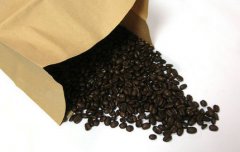Before long-distance running, you might as well have a cup of coffee, sports, caffeine drink, running coffee, the benefits of running coffee on exercise.

Caffeine used to be a restricted product for athletes and was thought to cause dehydration. However, new research shows that a caffeinated drink can help people stabilize their protein bodies.
Over the past 400 years, caffeine has become an indispensable part of people's daily lives in the West. For most of us, caffeine that can be naturally extracted from more than 60 plants is the equivalent of refreshing coffee in the morning, or a necessary means of sharpening the senses in the afternoon when you are extremely sleepy. However, in addition to being widely used as a stimulant, caffeine actually hides a variety of sports benefits, so much so that many of the world's leading long-distance runners use it as an important part of pre-race preparation.
"I usually drink some coffee 20 minutes before the game," Mo Fareh, a famous British track and field athlete, revealed in his autobiography double ambition. "when I go on the field, I can clearly feel the power of caffeine." At first glance, it seems foolish for an athlete to drink coffee. After all, it is well known that caffeine causes dehydration and produces a diuretic effect by stimulating urine. In practice, however, this happens only when the human body is at rest, and this function is no longer established during exercise.
"recent studies have shown that the brain is the central governor of fatigue and is responsible for regulating it," said Emma, a senior sports dietitian at Sports Science. "for example, if you do your best at the end of a long-distance run, your brain will detect the increased acidosis in the increase in lactic acid caused by this force, as well as the increased concentration of carbon dioxide in muscle tissue. It will understand that this will affect the stability of your body and will eventually try to slow you down. Caffeine can cover this effect and help maintain the effect of your efforts. "
"if you're going to run for hours, it's a good idea to try a caffeine drip," Emma said. "but we should also keep in mind that caffeine is essentially a stimulant, like many other energy supplements. It's okay to take it once in a while, but it may pay a price for long-term use to take advantage of the benefits it can bring."
Important Notice :
前街咖啡 FrontStreet Coffee has moved to new addredd:
FrontStreet Coffee Address: 315,Donghua East Road,GuangZhou
Tel:020 38364473
- Prev

8 unexpected uses of coffee, fat reduction, weight loss, peculiar smell, cooking secret recipe, coffee use.
Coffee is a beverage made from roasted coffee beans, which is the main drink popular in the world along with cocoa and tea. The benefits of drinking Coffee Coffee beans contain about 100 different substances, including caffeine, tannic acid, oil and nitrogen compounds, caffeine 44 milligrams per 100 grams of instant coffee and 64 milligrams of caffeine per 100 grams of prepared coffee. Coffee
- Next

The real reason why coffee fascinates us is coffee culture Starbucks coffee benefits anti-cancer coffee coffee
There are about 1 billion people around the world who start their day by having a cup of coffee first thing in the morning. Among these 1 billion people, the proportion of Chinese is increasing year by year. A survey shows that 70% of Chinese people drink coffee, and 30% of them have formed the habit of drinking coffee every day. However, when we were nurtured in the fragrant and pleasant tea culture, we always felt bitter and astringent.
Related
- What is the difference between Indonesian Sumatra Mantinin coffee and gold Mantinin? How to distinguish between real and fake golden Mantelin coffee?
- What does bypass mean in coffee? Why can hand-brewed coffee and water make it better?
- Unexpected! Ruixing Telunsu lattes use a smoothie machine to foam milk?!
- % Arabia's first store in Henan opens into the village?! Netizen: Thought it was P's
- Does an authentic standard mocha coffee recipe use chocolate sauce or powder? Mocha Latte/Dirty Coffee/Salty Mocha Coffee Recipe Share!
- What is the difference between Vietnam egg coffee and Norway egg coffee? Hand-brewed single product coffee filter paper filter cloth filter flat solution!
- What is the difference between sun-cured and honey-treated coffee? What are the differences in the flavor characteristics of sun-honey coffee?
- How to make Italian latte! How much milk does a standard latte use/what should the ratio of coffee to milk be?
- How to make butter American/butter latte/butter Dirty coffee? Is hand-brewed coffee good with butter?
- Is Dirty the cold version of Australian White? What is the difference between dirty coffee/decent coffee and Australian white espresso?

